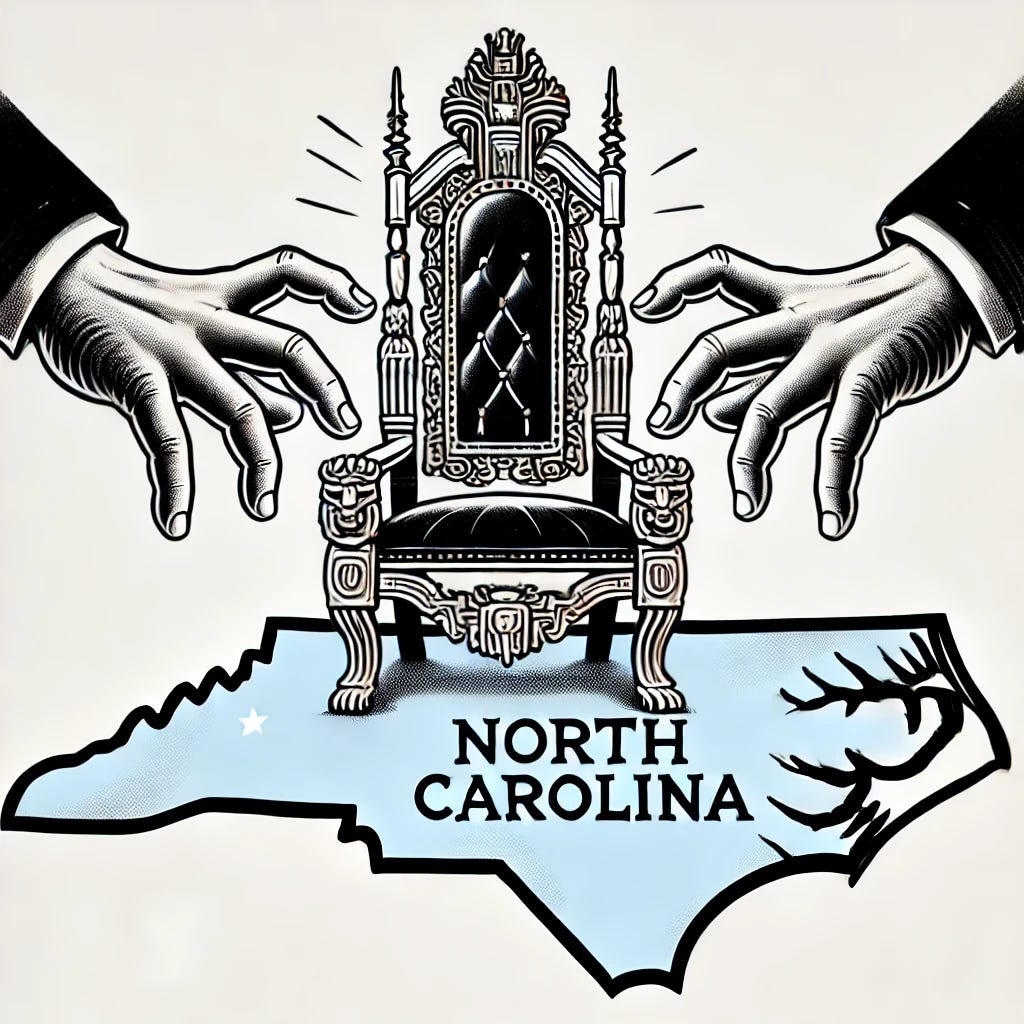1st Round: The Ultimate N.C. Politics Showdown
Cast your vote for peak NCPOL in this March Madness-style bracket. The first round is open now.
We’ve built the ultimate bracket to determine what most embodies North Carolina politics — and you get to decide the winner. From legendary power players to iconic traditions, first-round matchups are live now.
Cast your votes below.
The Power Players Region
North Carolina’s political landscape has been shaped by dominant figures, kingmakers, and institutions that have defined power in the state for decades. Some built their legacies through electoral victories. Others influenced policy and campaigns from behind the scenes. But who best represents North Carolina politics? You decide.
(1) Jim Hunt vs. (16) The Goodmon Family and WRAL
Jim Hunt is the dominant figure in N.C. Democratic politics, serving four terms as governor and shaping the modern party. WRAL and the Goodmon family, meanwhile, have been the dominant media force in the state for decades — often operating as a political player in their own right. Can the ultimate NC politician fend off the ultimate NC media empire?

